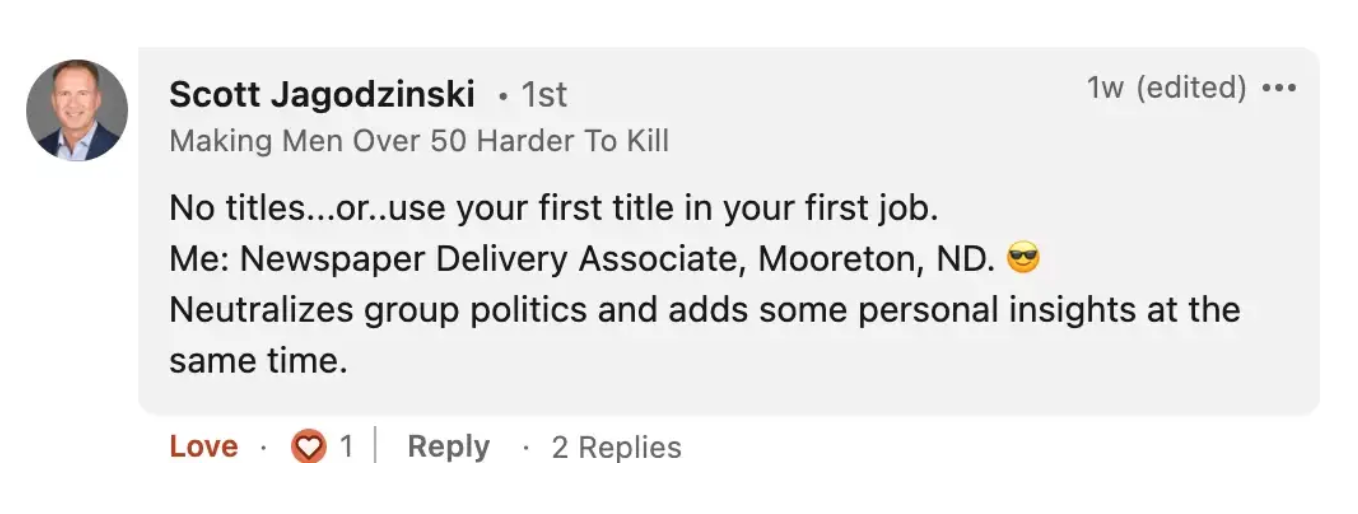Why workshop facilitators should opt for de-titled introductions
Recently, I posed a question to my peers about using titled or de-titled introductions when beginning workshops, and the responses were unanimous: de-titled intros are preferred.
Why is it so powerful, and what benefits does doing so bring to the workshop space?
It helps neutralize politics. Titled intros establish a hierarchy and power dynamics instantly, so taking them out of the mix is a great way to contribute to a level playing field for participants.
Junior titles may be more inclined to speak up and less inclined to jump on the bandwagon when higher-power titles aren’t emphasized right away. While they may still be aware of titles/positions, de-emphasizing them can reduce their power. This leads to better results because more people feel empowered to contribute ideas.
When people don’t have to focus on sounding impressive when sharing their own titles, we reduce performance anxiety. In turn, a more comfortable and conversational tone is cultivated in the meeting.
Ditching titles keeps people from establishing a point of view or swaying the group right out of the gate. And sometimes people don’t simply share their current title, but a tale of many titles (and what they worked on, who they report to, etc.), which immediately establishes a POV or position on the issue.
So, if you’re leaving titles out of intros, what might they look like instead?
In addition to having people share their names, have them share where they’re calling from (if virtual), as well as a humanizing factoid, like how they’re doing. I sometimes ask participants to pick an emoji that best describes their current mood (I have other playful prompts in this post).
I also really liked a suggestion that Scott Jagodzinski shared in the comments of my original post on this topic.He sometimes asks people to include the first title of their first job, which is not only neutralizing but also lends a personal touch.
Now, some people might notice the absence of titles in your intro prompt. At a workshop not long ago, one of my higher-ranking participants asked in front of the group if/when we would be sharing them. It gave me the opportunity to explain why we wouldn’t be doing so and helped everyone understand the intention. If you encounter teams or personalities that question the method, I encourage you to share the context with them. It usually goes over well.
Intros may not seem like a significant opportunity to neutralize power dynamics, but they truly set the tone for a session and impact the group’s energy. Designing your workshops with this in mind will better support your teams as they strive to collaborate and uncover their best ideas.

